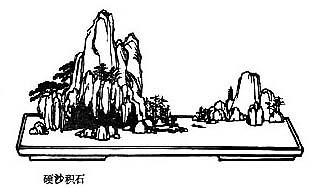Having CONVERTED SPIES, getting hold of the enemy's spies and using them for our own purposes.1
1. By means of heavy bribes and liberal promises detaching them from the enemy's service, and inducing them to carry back false information as well as to spy in turn on their own countrymen. On the other hand, Hsiao Shih-hsien says that we pretend not to have detected him, but contrive to let him carry away a false impression of what is going on. Several of the commentators accept this as an alternative definition; but that it is not what Sun Tzu meant is conclusively proved by his subsequent remarks about treating the converted spy generously (ss. 21 sqq.). Ho Shih notes three occasions on which converted spies were used with conspicuous success: 1) by T`ien Tan in his defense of Chi-mo (see supra, p. 90); 2) by Chao She on his march to O-yu (see p. 57); and by the wily Fan Chu in 260 B.C., when Lien P`o was conducting a defensive campaign against Ch`in. The King of Chao strongly disapproved of Lien P`o's cautious and dilatory methods, which had been unable to avert a series of minor disasters, and therefore lent a ready ear to the reports of his spies, who had secretly gone over to the enemy and were already in Fan Chu's pay. They said: "The only thing which causes Ch`in anxiety is lest Chao Kua should be made general. Lien P`o they consider an easy opponent, who is sure to be vanquished in the long run." Now this Chao Kua was a sun of the famous Chao She. From his boyhood, he had been wholly engrossed in the study of war and military matters, until at last he came to believe that there was no commander in the whole Empire who could stand against him. His father was much disquieted by this overweening conceit, and the flippancy with which he spoke of such a serious thing as war, and solemnly declared that if ever Kua was appointed general, he would bring ruin on the armies of Chao. This was the man who, in spite of earnest protests from his own mother and the veteran statesman Lin Hsiang-ju, was now sent to succeed Lien P`o. Needless to say, he proved no match for the redoubtable Po Ch`i and the great military power of Ch`in. He fell into a trap by which his army was divided into two and his communications cut; and after a desperate resistance lasting 46 days, during which the famished soldiers devoured one another, he was himself killed by an arrow, and his whole force, amounting, it is said, to 400,000 men, ruthlessly put to the sword.
Giles XIII.11.
Par la division entre les inférieurs et les supérieurs, j'entends celle qui nous met en état de profiter de la mésintelligence que nous aurons su mettre entre alliés, entre les différents corps, ou entre les officiers de divers grades qui composent l'armée que nous aurons à combattre.
Amiot

 – The Art of War
– The Art of War 
